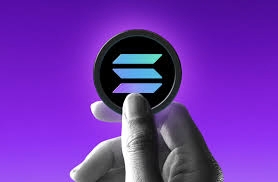Kaia Announces Mainnet Launch Alongside the Kaia Wave Builder Support Program
Layer 1 blockchain Kaia has announced the official launch of its mainnet, as well as the Kaia Wave builder support program developed by Kaia and LINE NEXT to promote consumer adoption of web3 services. With more than 400 partners on board, Kaia, which was formed via the merging of the L1 chains Klaytn and Finschia, which were initially developed by Kakao and LINE, respectively—both operators of well-known Asian messaging apps—aims to grow into a significant web3 ecosystem.
On August 29, the Kaia mainnet will launch as the fastest EVM blockchain in the world with one-second finality, very low gas fees, and backing from top Asian web3 partners including Kakao and LINE NEXT, LINE’s initiative devoted to advancing and growing the Web3 ecosystem.
Through extensive integration with top Asian messengers, Kaia seeks to address web3’s UX and distribution issues. This would enable a flourishing ecosystem of scalable web3 infrastructure-powered DeFi, gaming, RWAs, and messaging applications.
With the help of the NEXT WEB SDK package, which also contains the LINE LIFF API, Kaia Wallet Market API, and Kaia Wallet SDK, Kaia builders will be able to integrate native applications in the Telegram-style by developing LINE Mini Dapps that launch within the LINE messenger. By taking use of Kaia’s low TX latency, account abstraction, and fee delegation capabilities, developers may access hundreds of millions of LINE users in Asia and provide a smooth end-to-end user experience.
With grants accessible to builders who use the NEXT WEB SDK, the Kaia Wave builder support program, developed by Kaia and LINE NEXT, will provide up to $1.2M in marketing, tech, and business support per qualified team. Teams will also benefit from follow-up VC connections, TGE, and liquidity assistance.
Dr. Sam Seo, Chairman of Kaia DLT Foundation, said:
“The much-anticipated launch of the Kaia mainnet heralds a new era for the mass consumer adoption of blockchain-based services. Kaia will bring web3 to the rest of the world, starting from Asia.”
Youngsu Ko, CEO of LINE NEXT Inc stated:
“The launch of the Kaia mainnet is an important momentum for the LINE NEXT business as well, and I think it has started an important first step toward expanding the Asian Web3 ecosystem. LINE NEXT will focus on bringing new experiences to users with the new Web3 platform and LINE Mini Dapps through Kaia Wave.”
In South Korea, Klaytn’s blockchain technology is already extensively used for a number of consumer-facing use cases, including loyalty programs and certifications for medical implants. The well-known DOSI digital commerce platform, on the other hand, is powered by the Finschia blockchain and allows users to pay with cryptocurrency or fiat for NFTs, concert tickets, access passes, and memberships. With the migration of projects like DOSI to Kaia, the merging of these two blockchains will guarantee widespread adoption from day one.
With 250 million users combined from LINE and Kakaotalk, the Kaia mainnet will begin with a vast addressable user base. 96% of South Koreans use Kakaotalk, and LINE is the most popular messenger in Japan, Taiwan, and Thailand. Kaia gives developers access to a ready-made market via its integration with two of the most widely used messenger superapps in Asia, enabling them to build original dapps that millions of users may download.
Disclaimer: The content of this article solely reflects the author's opinion and does not represent the platform in any capacity. This article is not intended to serve as a reference for making investment decisions.
You may also like
Tether freezes $27 million in USDT from sanctioned Russian exchange Garantex

Deputy Anton Gorelkin Calls for Rejection of USDT Stablecoin

Solana DEX Volumes Suggest Competitive Edge Over Ethereum Ecosystem Amid Memecoin Market Challenges

Franklin Templeton says Solana’s DeFi rise presents a threat to Ethereum
Share link:In this post: A Franklin Templeton report suggested that Solana threatened Ethereum due to its growing influence. Solana’s DEX volumes surpassed the Ethereum ecosystem in January, highlighting a potential market shift. According to the report, the shift to activity to the layer two blockchain shows the Ethereum scaling approach was working.
